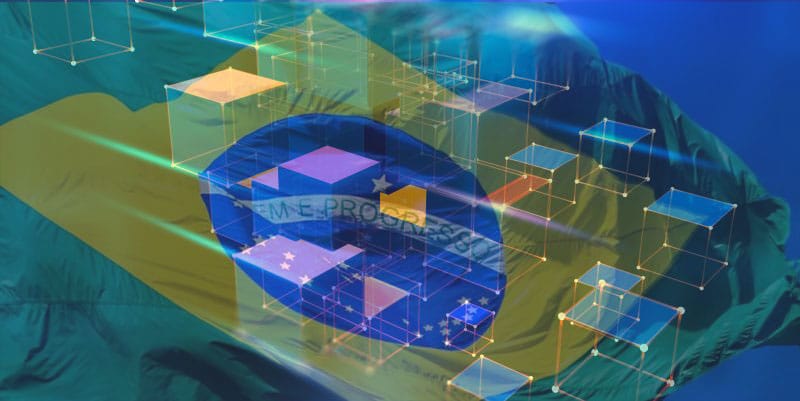The Federal Government of Brazil invested USD 1.4 billion for the development of the second phase of the project BlockloT, which consists of an application platform for the Internet of Things (loT) that records data in a blockchain. The initiative is based on the concept of the Internet of Things to Trusted (Internet of Trusted Things, or IoTT) that offers more security, privacy and reliability to the processes of authentication, identity control and traceability of objects, as well as audits in the universe of IoT.The project aims to develop technologies applicable to smart cities and to offer solutions to citizens in the field of public security, urban mobility and public health in an ecosystem multidisciplinary, comprising public and private agencies interested in solutions and technologies related to Internet of Things (loT).According to the Official Gazette (Official Journal of Eu published on Wednesday, December 4, the project is in charge of the Research and Development Center in Telecommunications (CPqD) in Brazil. The first phase had a duration of twelve months and it is expected that the following will last the double of time in which the team will work on adding technological components and identification applications decentralized, traceability and authentication processes safe.The proposal of CPqD is to deploy four use cases of IoT in a real environment of great national importance to Brazil, as for example the development of the city of Campinas, in the interior of Sao Paulo. The use cases make up the four layers of IoT (devices, connectivity, support operations, and security) and are interoperable through the use of the platform dojot open-source, developed by CPqD.De according to what is described by the local media, the project envisages launching two pilots. The first of these consists in three use cases that focus on the challenges of improving the capacity of surveillance and monitoring of various areas of the city to mitigate situations of risk to the population. One of these applications involves the use of video surveillance with high-definition cameras, with the goal of increasing the productivity of the agents of public safety.Another use case consists of a portal monitoring of vehicles and number plates to improve safety and urban mobility. To this end, it intends to expand the number of portals recognition and identification of vehicles equipped with smart cameras that are connected through wireless technology IoT of the latest generation.The third use case of the first pilot allows the measurement of microclimates in the urban area through weather stations that will operate integrated with sensors of level of the rivers at strategic points of the city. This will allow you to provide relevant data, at the appropriate time, so that the Civil Defense to issue warnings that can mitigate the impact caused by the environmental disasters.In April of this year Breaking News reported that Blocklot was included in the list of the 20 projects of digital identity is decentralized to develop in Latin america. According to publications in local media, the team of CPqD is currently evaluating the various development platforms available in the market that could be used as the central framework of the solution blockchain of the project.Jose Reynaldo Formigoni, president of CPqD, during the presentation of the project at the Conference BlockSpot that took place in Sao Paulo in may of 2018. Source: Twitter @Bk_13_Igor.
A challenge for Brazil
A publication on the website of the CPqD speaks of the challenge that is the brazilian State with the construction of an ecosystem by means of the articulation of public policies focused on innovation. The CPqD has become the second-node validation network Sovrin. This network currently has 60 nodes and is based on the framework Hyperledger Indy, one of the services offered by the initiative Hyperledger of the Linux Foundation, which CPqD is also a member organization.The Government of Brazil has been investing in projects blockchain. Last July, a publication of the Official Gazette of the Federation revealed the Plan of Application of Funds (COUPLE) from 2019 to 2021 of the Foundation CPqD, one of the largest centers of research and development of telecommunications and Information Technology in Latin America.The institution also has in development the project Teranet, whose goal is to advance signal processing for implementation in integrated circuits, photonic devices, integrated optical transceivers, optical transmission and networking of centres of datos.De according to an official press release of 5 July, the resources should be applied to projects in the following way: Platform IoT: USD 2.417.302; USD 1.860.834 and USD 841.944, respectively, for the years 2019, 2020 and 2021. To the Teranet (Phase 2): USD 845.833; USD 1.335.451 and USD 1.160.053 for 2019, 2020 and 2021, respectively; and for the development of IoT-Blockchain (Phase 3): USD 1.281.369 during the next three years.The project you are working on Brazil is similar to that announced at the beginning of November in China, which consists of a system of identification of cities based on the technologies of blockchains, as part of the development of an infrastructure for smart cities. The code system of smart cities is based on the use of nodes in line with international standards, which will be assigned digital ids unique and global for all cities.

